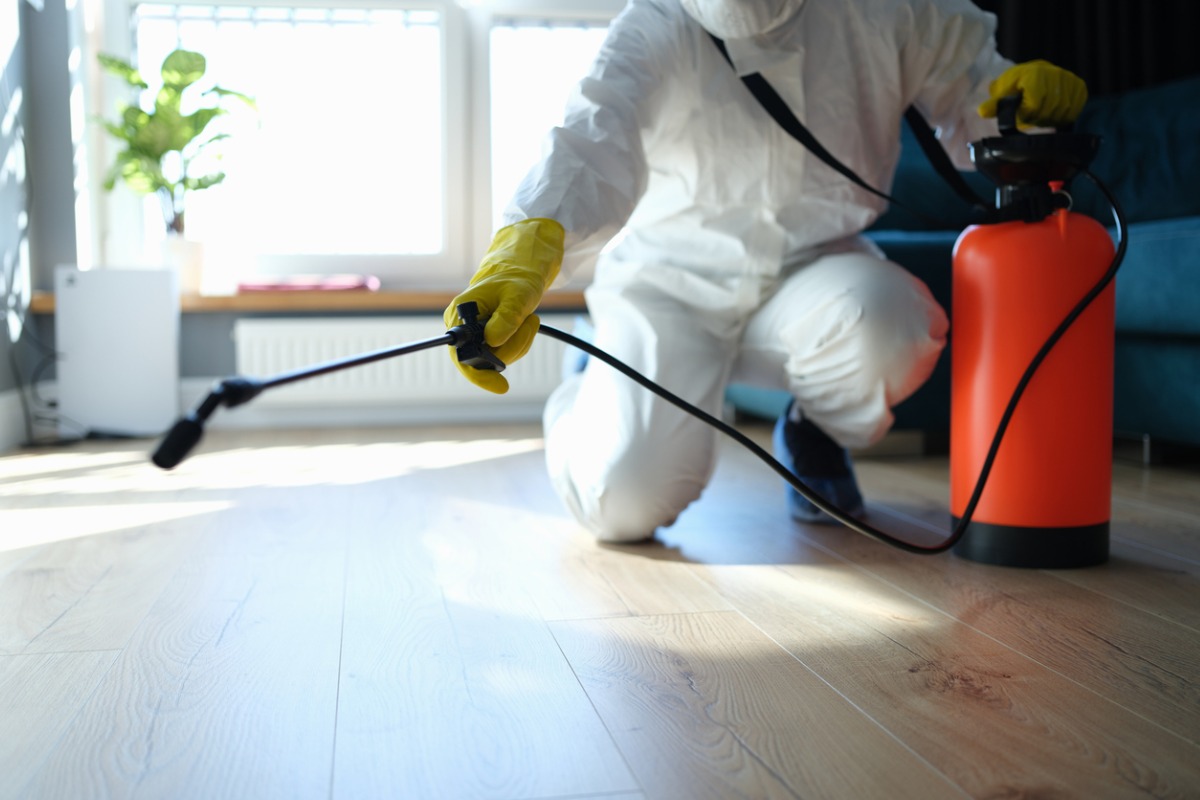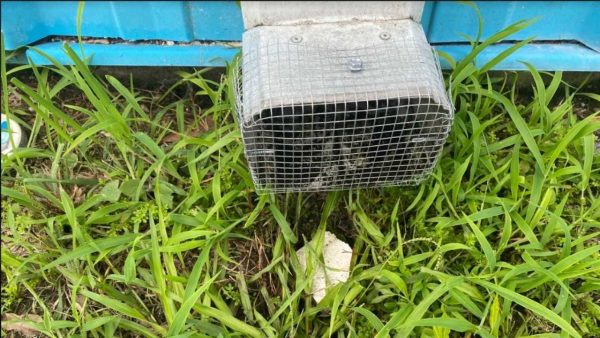Why Pest Control in Charlotte County Is Crucial for Your Property’s Health
Why Pest Control in Charlotte County Is Crucial for Your Property’s Health
Blog Article
Discover the Value of Bug Control in Keeping a Healthy And Balanced Setting and Therapy Methods

The Role of Pests in Ecosystems
Parasites, typically seen solely as nuisances, play a diverse duty in ecosystems that is essential for keeping ecological balance. They add considerably to numerous environmental procedures, including pollination, vitamins and mineral biking, and parasite control. Lots of insect species, such as butterflies and bees, are vital pollinators for a vast variety of plants, which in turn sustains biodiversity and food production.
Additionally, parasites act as target for many killers, creating an essential link in food internet. This connection ensures the survival of numerous types and helps manage populations within environments (Termite treatment Port Charlotte). Furthermore, decomposer pests, such as particular beetles and fungi, are critical in breaking down raw material, therefore improving soil and promoting vitamins and mineral recycling.
On the other hand, while insects can be advantageous, their overpopulation or intrusion right into non-native environments may interrupt these eco-friendly features. This complexity highlights the relevance of recognizing bug characteristics, as effective pest management approaches have to take into consideration both their ecological duties and potential effect on human tasks. Stabilizing pest visibility while lessening damage is essential for maintaining the stability of communities and guaranteeing farming performance.
Wellness Threats Connected With Bugs
The presence of pests in various environments prolongs past their ecological functions, as they also present significant wellness threats to people and animals. Lots of parasites, consisting of rats, bloodsuckers, and insects, are carriers of diseases that can have major wellness implications. Rats are recognized to send hantavirus and leptospirosis, both of which can lead to serious respiratory system and kidney issues, respectively.
Insects such as ticks and mosquitoes are notorious for spreading vector-borne illness like jungle fever, dengue high temperature, and Lyme illness. These diseases can result in high morbidity and mortality prices, particularly in vulnerable populaces. Additionally, bugs like roaches and insects can exacerbate allergies and asthma, adding to breathing problems in individuals, especially those with pre-existing problems.
In addition, the existence of parasites can cause mental stress and anxiety and discomfort, affecting general health. Contamination of food and surface areas by bug droppings and remains can bring about foodborne health problems, highlighting the significance of keeping sanitary problems. Consequently, understanding the health and wellness dangers related to bugs is critical in acknowledging the requirement of reliable insect management techniques to guard human and animal health and wellness.

Advantages of Effective Bug Control
Reliable pest control is necessary for keeping a healthy and balanced and safe atmosphere, as it regularly minimizes the countless threats linked with parasite invasions. One of the primary advantages of effective parasite management is the reduction of carcinogen. Bugs such Recommended Site as rats, mosquitoes, and roaches are vectors for conditions that can influence both family pets and people. By regulating these populations, the probability of condition transmission is substantially lowered.
In addition, reliable pest control safeguards residential property and structures from damage. Many insects, like termites and woodworker ants, can trigger extensive architectural damage that may need costly repair work. By proactively handling these companies, invasions and property owners can protect their financial investments.
One more substantial benefit is the improvement of general lifestyle. A pest-free atmosphere adds to mental well-being and lowers anxiety related to problems. Effective bug control fosters a much safer atmosphere for kids and family pets, ensuring that homes continue to be havens cost-free from hazardous chemicals and disease-causing organisms.
Common Parasite Control Techniques

In the realm of parasite monitoring, different methods are employed to battle infestations properly. These methods can be broadly categorized right into 3 primary approaches: social, mechanical, and chemical controls.
Cultural control involves changing techniques to minimize insect recreation, establishment, and survival. This may consist of plant turning, correct sanitation, and habitat control, which collectively develop a setting much less helpful to pest proliferation.
Mechanical control uses physical techniques to remove bugs (Termite treatment Port Charlotte). Strategies such as vacuum cleaners, catches, and barriers are commonly used to straight get rid of parasites from an area. This strategy is specifically efficient for handling rodents and pests without the usage of dangerous chemicals
Chemical control involves the application of pesticides to take care of bugs. These substances can be classified into fungicides, pesticides, and herbicides, each targeting specific kinds of bugs. It is vital to utilize these chemicals judiciously, sticking to security standards and guidelines to lessen prospective harm to non-target types and the setting.
Each bug control method has its limitations and advantages, and frequently, an incorporated method incorporating several approaches generates the most effective lead to maintaining a pest-free environment.
Sustainable Insect Administration Practices
Lasting pest monitoring techniques incorporate a variety of methods created to lessen environmental influence while properly regulating parasite populations. These techniques prioritize making use of eco-friendly methods over chemical pesticides, thereby minimizing the threat of injury to termite tenting cost non-target species, consisting of beneficial insects, wildlife, and people.
Integrated Insect Administration (IPM) is a cornerstone how to do pest control of lasting techniques, integrating organic, social, mechanical, and chemical strategies to handle pests. Biological control involves presenting natural predators or parasites to reduce insect populations. Social methods, such as plant rotation and polyculture, interrupt pest life process and improve ecosystem strength.
Mechanical techniques, such as barriers or traps, can effectively protect against pest accessibility without chemical treatment. In addition, keeping healthy and balanced environments through proper dirt monitoring, plant health and wellness, and biodiversity can naturally reduce bug concerns.
Education and learning and understanding are essential elements, encouraging people and neighborhoods to acknowledge insect hazards early and execute safety nets. Termite treatment Port Charlotte. By promoting an alternative approach that balances parasite control with environmental integrity, lasting insect management practices not just secure plants and structures yet additionally add to a healthier environment for future generations
Final Thought

Comprehending the health dangers connected with parasites is essential in acknowledging the requirement of efficient bug management methods to guard human and animal health and wellness.
Reliable insect control is important for preserving a safe and healthy and balanced setting, as it continually minimizes the numerous threats associated with pest invasions.Integrated Pest Administration (IPM) is a foundation of lasting practices, incorporating organic, social, mechanical, and chemical tactics to take care of parasites. By understanding the function of insects, recognizing associated health threats, and using diverse therapy techniques, a sustainable approach to pest management can be achieved. Integrated Parasite Monitoring (IPM) stresses an alternative methodology that minimizes injury to beneficial microorganisms while effectively controlling parasite populations.
Report this page